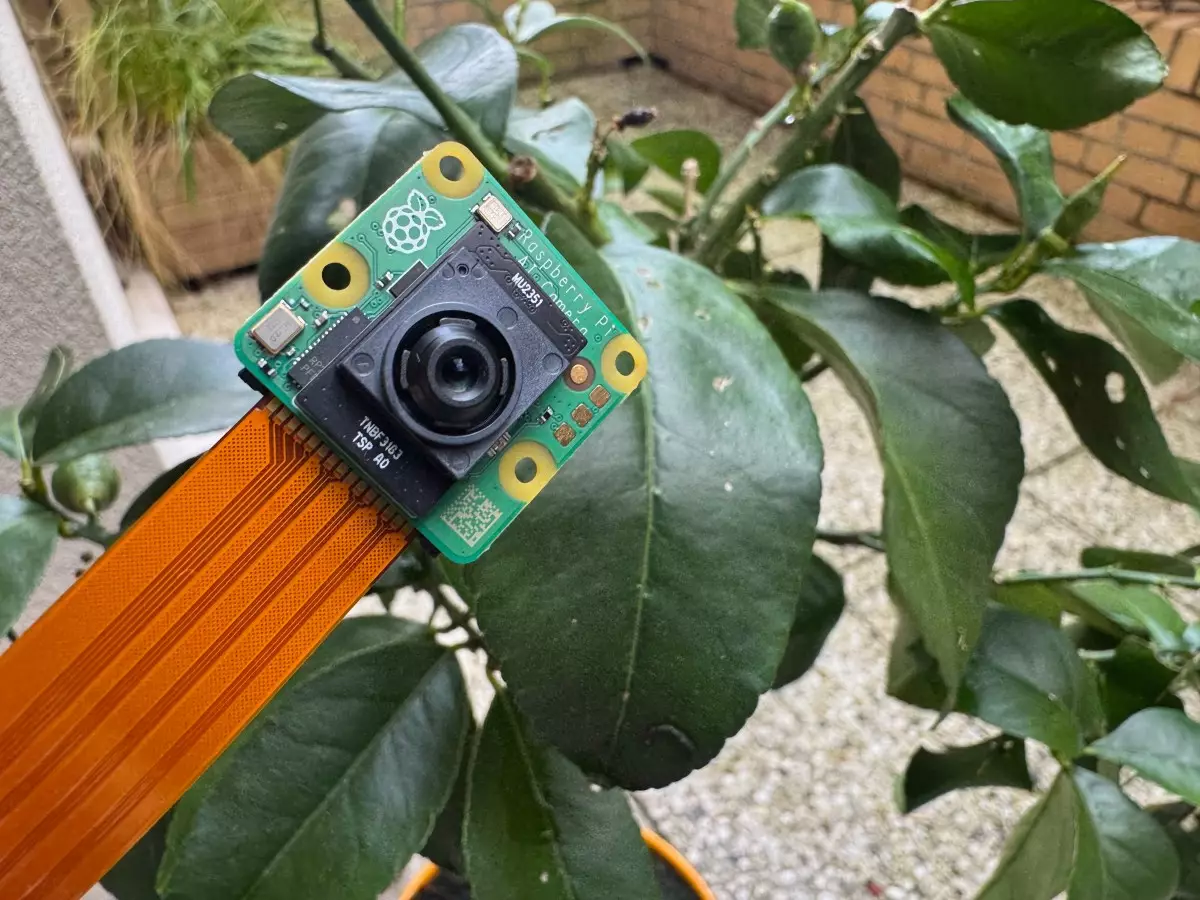In the ever-evolving world of technology, Raspberry Pi continues to innovate by introducing its latest offering, the Raspberry Pi AI Camera. This compact and affordable camera module is set to redefine the landscape of embedded systems and artificial intelligence (AI) applications. Priced competitively at $70, the AI Camera is not just an accessory but a powerful tool that bridges the gap between image capture and intelligent data processing.
At its core, the Raspberry Pi AI Camera leverages the advanced Sony image sensor called IMX500. This sensor is complemented by the RP2040 microcontroller, Raspberry Pi’s own chip designed for efficiency and affordability. By integrating on-chip SRAM, the RP2040 provides a solid foundation for the AI Camera’s capabilities, allowing it to execute image processing directly on the module. Importantly, this design philosophy aligns with Raspberry Pi’s long-standing commitment to affordability without compromising performance. As a result, while the AI Camera may not be a suitable alternative for high-performance tasks traditionally handled by more powerful Nvidia GPUs, it serves a crucial role in lightweight applications.
The camera module’s dimensions match those of the existing Raspberry Pi Camera Module 3, measuring 25mm by 24mm. However, its slightly thicker profile is a result of the optical sensor’s structure. This form factor facilitates easy integration into various systems and setups, making it an attractive option for developers and engineers working on AI-driven projects.
One of the standout features of the Raspberry Pi AI Camera is its ability to perform on-board AI processing. Pre-loaded with the MobileNet-SSD model, the camera allows for real-time object detection, enabling instantaneous analysis of visual data. This means that applications requiring immediate response, such as security systems and automated quality control, can benefit significantly from the camera’s capabilities. Furthermore, by offloading visual data processing from the host Raspberry Pi unit, the AI Camera helps maintain the main device’s performance. This is particularly beneficial in applications where multiple tasks must be executed concurrently without latency or processing delays.
Initially marketed to tech enthusiasts and hobbyists, Raspberry Pi has experienced a paradigm shift as a significant portion of its customer base is now industrial and embedded systems. A staggering 72% of the company’s revenue stems from this sector, indicating a robust demand for reliable platforms. The AI Camera is expected to tap into this growing market effectively, providing high-quality solutions for various use cases.
Potential applications for the AI Camera are vast and varied. In smart city initiatives, it may function as a sensor to detect available parking spaces or monitor traffic patterns. In industrial settings, automated quality assurance can be streamlined using the AI Camera, identifying defects on production lines with speed and accuracy. The ability to source these modules in bulk and with consistency further cements Raspberry Pi’s appeal to businesses, allowing for seamless integration into existing production frameworks.
Raspberry Pi’s commitment to maintaining the availability of its products is another vital aspect of its strategy. The AI Camera is promised to be in production until at least January 2028, ensuring that developers and businesses can count on reliable access to these critical components well into the future. This assurance of long-term availability is crucial for industries that prioritize consistency and reliability in their supply chains, especially in a post-pandemic landscape.
As the demand for AI applications continues to surge, Raspberry Pi’s foray into this space with the AI Camera is both timely and strategic. With its combination of affordability, compactness, and advanced capabilities, the Raspberry Pi AI Camera stands poised to enhance a multitude of projects across various sectors. Its launch not only highlights Raspberry Pi’s determination to innovate but also its ability to adapt to an increasingly AI-driven world, ensuring that it maintains its relevance in the fast-paced tech arena.

